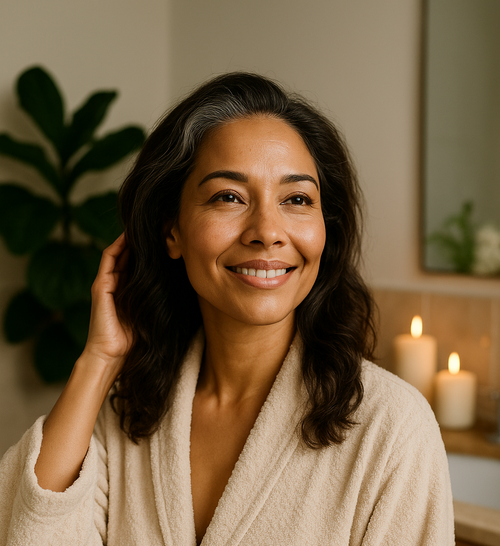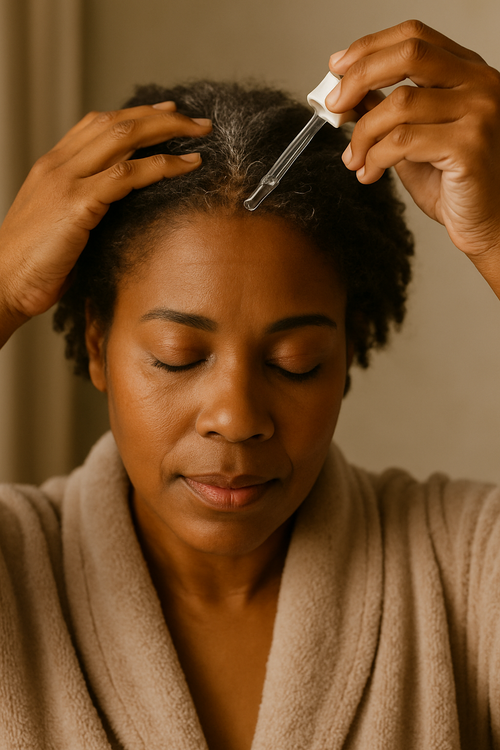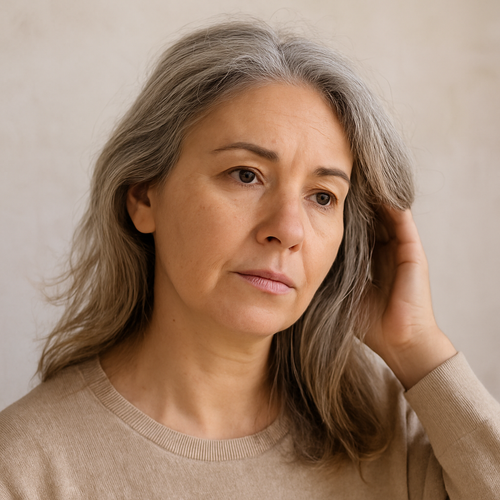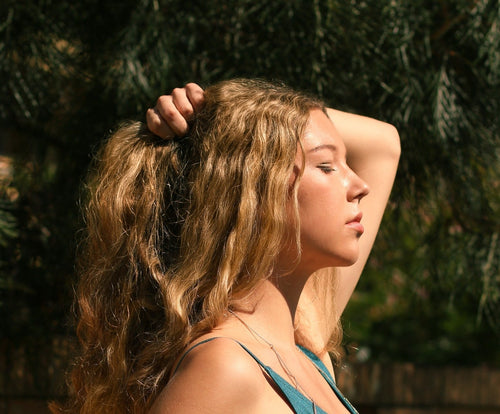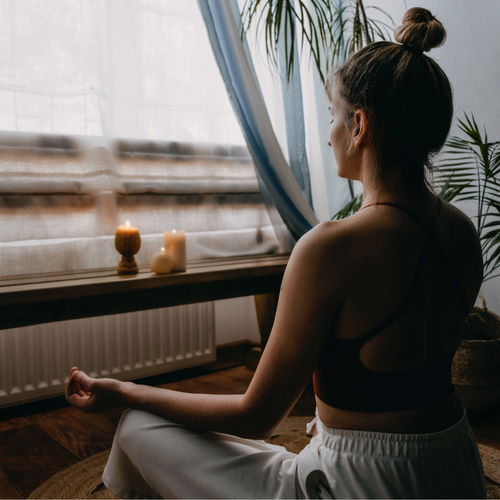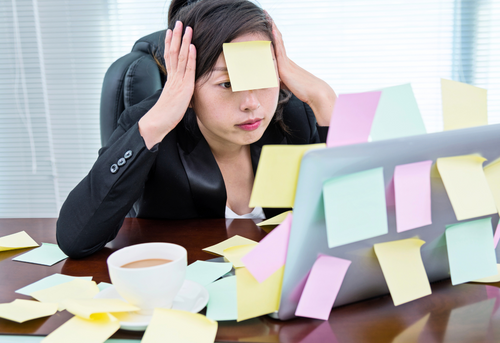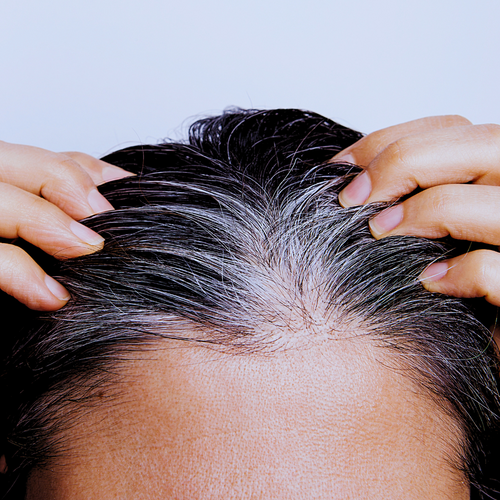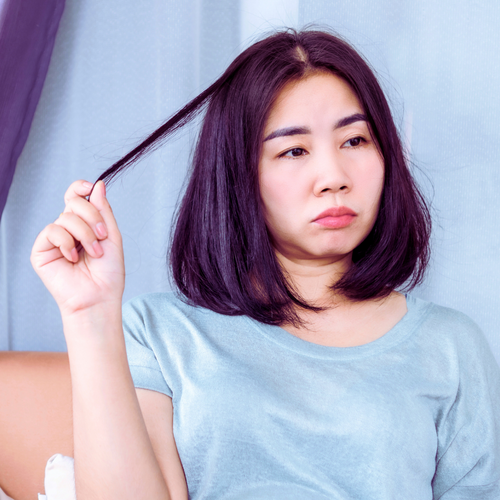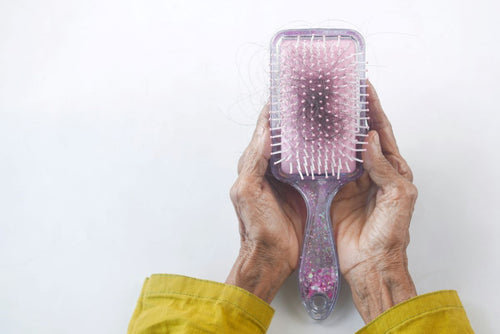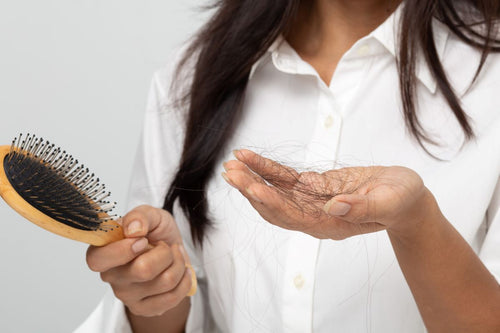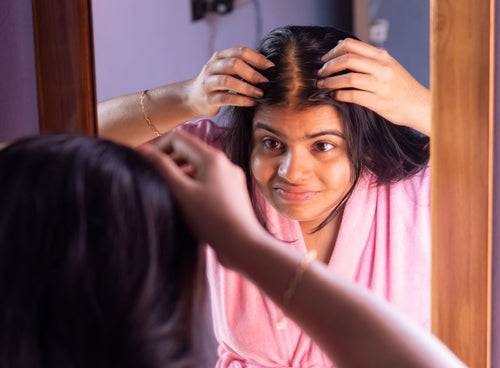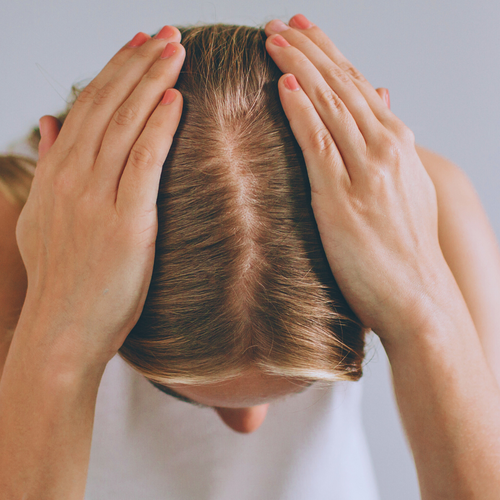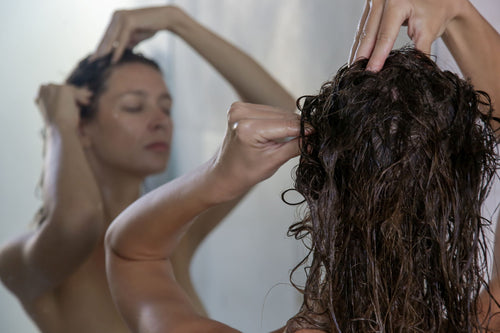We understand the need to sleep well for overall wellness, but were you aware that it is also beneficial to healthy hair? If you've been experiencing balding or excessive hair loss lately, the perpetrator might just be your sleeping habits.
In this piece, we'll discuss the connection between lack of sleep and hair loss, the biology behind it, and natural remedies—including adaptogens—to nourish your hair while enhancing your sleep.
The Science Behind Lack of Sleep and Hair Loss
How Sleep Impacts Hair Growth Cycles
The cycle of hair growth has three phases:
• Anagen (growth phase): Hair grows actively.
• Catagen (transition phase): A brief phase during which hair growth stops.
• Telogen (resting phase): Hair is shed and the follicle readies for new growth.

Sleep deprivation may interfere with this process, which causes more hairs to enter the telogen (shedding) phase prematurely. This condition, referred to as telogen effluvium, leads to inappropriate hair loss caused by stress or body disruptions—including sleep deprivation.
The Contribution of Cortisol to Sleep Loss and Hair Loss
If you don't sleep well, your body produces more cortisol, the main stress hormone. Higher levels of cortisol:
• Induce inflammation, impacting hair follicle function.
• Interact with hormone synthesis, inducing imbalances in DHT (dihydrotestosterone), a hormone involved in baldness.
• Slowing down cell growth, damaging hair follicle health.
Chronic sleep deprivation over a long period of time can weaken hair follicles, reduce growth, and cause additional hair loss.
Melatonin, Sleep, and Hair Follicle Health
Melatonin, the hormone of the sleep cycle, also plays a role in hair growth. Studies show that melatonin works by extending the anagen (growth) phase, leading to healthier and thicker hair.
When sleep is disrupted, melatonin production decreases, potentially causing premature hair shedding and weaker strands.

Symptoms of Sleep-Related Hair Loss
Losing Hair Because of No Sleep? Watch Out for These Signs
If you're experiencing abnormal hair loss, lack of sleep could be the reason. Symptoms include:
• Unusual hair loss in the shower or on your pillow.
• Increased inflammation or scalp sensitivity.
• Thinning of hair at the hairline or crown.
• Slower hair growth and thinner strands.
How to Battle Hair Loss from Sleep Deprivation
Encourage Sleep Hygiene for Healthier Hair
Improving sleeping habits can promote hair growth and lessen stress-induced hair shedding:
• Have a regular sleep pattern to balance your circadian rhythm.
• Limit blue light from screens in the evening to facilitate melatonin production.
• Establish a calming pre-sleep routine, such as a scalp massage using adaptogenic oils to calm and stimulate blood flow.
• Avoid drinking alcohol and caffeine before bedtime, as they disrupt deep sleep.

The Role of Adaptogens in Facilitating Stress and Sleep
Adaptogens are plant supplements that enable the body to manage stress and develop tolerance. Some of the strongest adaptogens for sleep induction and hair care are:
• Ashwagandha: Reduces cortisol levels and promotes deep sleep.
• Reishi Mushroom: Supports immune system and relaxation.
• Holy Basil (Tulsi): De-stresses and stabilizes the nervous system.
• Ginseng: Increases circulation and fortifies hair follicles.
Scalp treatment to encourage hair growth
While you are improving sleeping routines, you can feed your hair follicles and scalp with:
• Scalp massages with an adaptogenic serum to promote circulation and ease stress.
• Aromatherapy-infused scalp treatments with neroli and rose essential oils for relaxation.
Frequently Asked Questions (FAQ)
Can sleep deprivation lead to permanent hair loss?
In most instances, sleep deprivation causes reversible hair loss (telogen effluvium). Your hair should start to regrow once you get back to sleeping normally. Prolonged sleep deprivation could potentially lead to permanent thinning.
How many sleeping hours do I need for healthy hair?
The majority of adults require 7-9 hours of good quality sleep each night to assist with general health and maximum hair growth.
Do sleep supplements address hair loss?
Melatonin supplements, adaptogenic teas, and antioxidants may enhance sleep quality and minimize hair loss due to stress.
What are the top natural hair and sleep remedies?
With adaptogenic herbs, stress-reducing techniques, and a bedtime routine, one can balance the hormones, lower cortisol, and encourage healthy hair growth.
Conclusion
Lack of sleep and hair loss can go hand in hand, yet with healthy lifestyle changes, scalp health, and adaptogenic support, you can regain your full, healthy head of hair. Obtain adequate restful sleep, minimize stress, and feed your scalp to naturally fight thinning hair.


